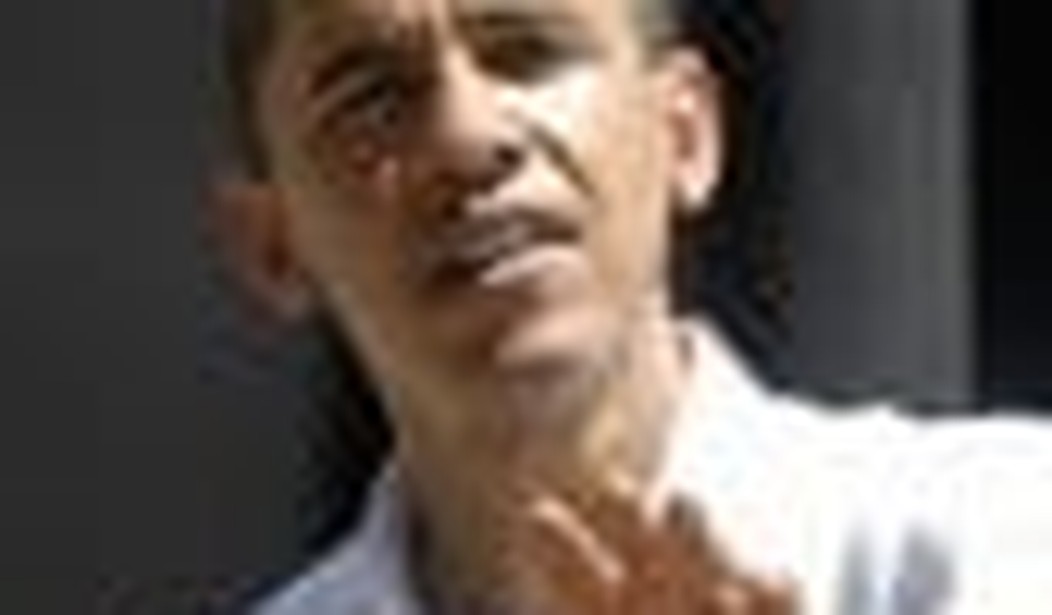On October 2, 2002, Marilyn Katz and Carl Davidson, graying Marxist radicals and former members of the radical Students for a Democratic Society (SDS), organized a small anti-war rally at Federal Plaza in Chicago to rail against a pending conflict with Saddam Hussein’s Iraq. Jesse Jackson was the headliner of the event, but a little-known Illinois state senator also spoke in front of the small crowd, protesting the pending conflict in Iraq, stating, “I don’t oppose all wars. What I am opposed to is dumb wars.”
That speaker, Barack Obama, rode his 2002 anti-war speech to prominence, and it was Obama’s unwavering position against the war that formed the core of his support that helped propel him to success in his 2004 U.S. Senate run.
Obama collected the Democratic presidential nomination with the support of the left wing of the Democratic Party by declaring his intentions to remove “one to two combat brigades each month,” with the goal of having “all of our combat brigades out of Iraq within 16 months.” It is a timeline that is logistically possible, though arbitrary and determined by domestic American political expediency, not by the security and political situation on the ground in Iraq, the advice of coalition military commanders, or the will of the Iraqi and regional governments concerned that instability caused by a headlong retreat could trigger a larger regional war.
Speaking in Fargo, ND, on Thursday, Obama caused an uproar when he stated during a rare press conference that he will “continue to refine” his policies regarding an Iraqi withdrawal.
Some in the media quickly claimed that softening of his rhetoric as proof he “backed off” his position, while progressive bloggers are publicly arguing that this was always part of his plan, and conservatives quickly noted the statement is yet another lurch to the political center, away from a radicalized base that helped him win the nomination but which cannot deliver him the presidency.
Both sides declared Obama a political opportunist. Roundly criticized from both the right and left for opening himself to the possibility of adopting a position based upon what is best for the Iraqi people, Obama scrambled to call a second press conference, where he seemed to retreat to the long-held position posted upon his website:
Obama will immediately begin to remove our troops from Iraq. He will remove one to two combat brigades each month, and have all of our combat brigades out of Iraq within 16 months. Obama will make it clear that we will not build any permanent bases in Iraq. He will keep some troops in Iraq to protect our embassy and diplomats; if al-Qaeda attempts to build a base within Iraq, he will keep troops in Iraq or elsewhere in the region to carry out targeted strikes on al-Qaeda.
While Obama’s migration to the political center on a whole raft of issues in recent days does indeed show opportunism by Obama, attacking Obama for flip-flopping on his core issue may not have been the best option undertaken by Republicans.
For those who see solid indications that Iraq can become a relatively stable democratic ally, Obama’s “retreat from retreat” should be a welcome sign that he is willing to finally acknowledge signs of success. His campaign may be attempting to create some space regarding his long-held position on Iraq to perhaps take into account the remarkable transformation in that country since he declared his withdrawal plan. The “wiggle room” is based upon the dramatic advances on both diplomatic and security fronts in Iraq, where his previous position on withdrawing U.S. combat forces held actual conditions in Iraq almost irrelevant when weighed against the desires of his domestic anti-war base. If he follows his hinted path and takes conditions in Iraq into account in adjusting his policies, it will be a significant repudiation of his “out at any cost” progressive supporters, and as they’re now arguing on message boards, it may be a betrayal of their support.
Republicans have every justification for pillorying the Democratic nominee as he tries to create rhetorical room for his pending pivot away from his signature position. “I was for it, before I was against it” defined the Democrats’ last presidential candidate, and suggesting that a mallability of character is a Democratic trait may swing some small number of moderate voters. Along with reversals or softening of rhetoric on other issues, from gun control to abortion, a softening of his withdrawal stance would be framed to suggest Obama doesn’t have immutable positions or principles.
If Republicans are wise, however, they’ll wield the hypocrisy charge lightly. Obama may be signaling a turn away from the progressive fringe on a defining component of his campaign, but if the success of coalition forces and the Iraqi government is a sincere goal of Republican politicians, they should perhaps simply welcome the Illinois senator’s suddenly more pragmatic approach as a position that may be best for both countries.









Join the conversation as a VIP Member